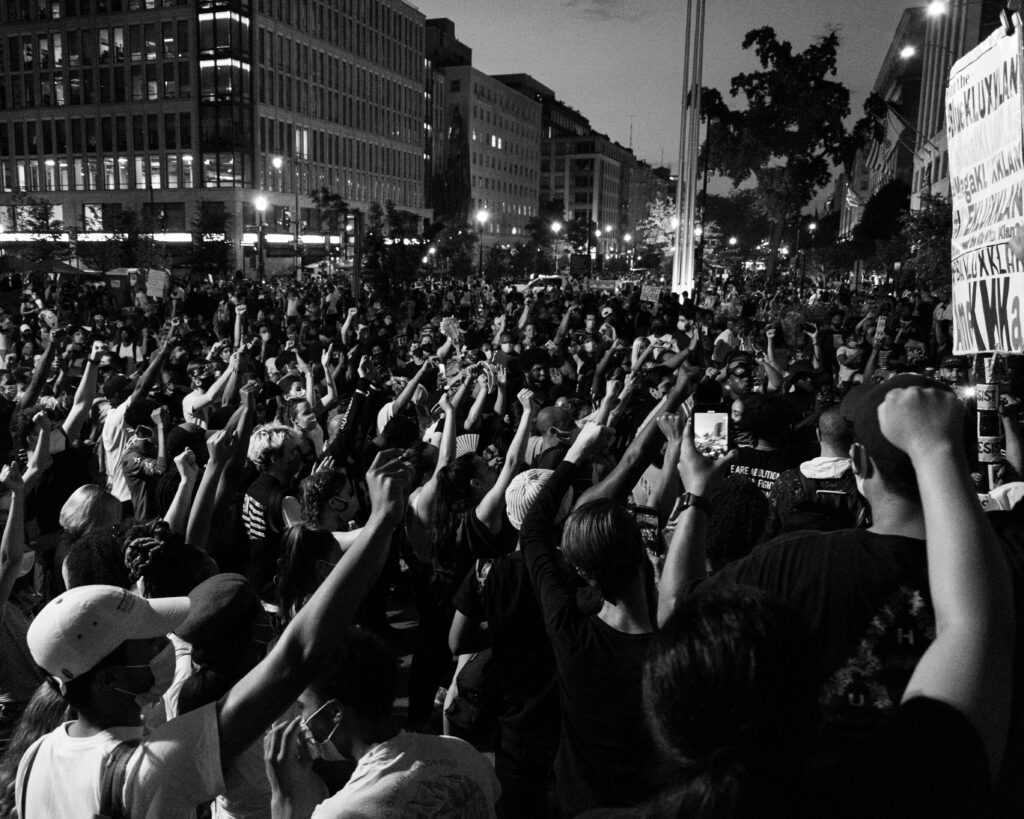
We live in a culture of protest, and one that didn’t just recently arrive on the scene. Nearly a century ago Mahatma Gandhi advocated non-violent protest against the British Empire’s claim of sovereignty over Indian affairs. Martin Luther King Jr. borrowed significantly from Gandhi in his leadership of protests against Jim Crow practices during the height of the Civil Rights Movement in the 1960s. Pro-life protesters have been active outside abortion clinics for decades. Beginning in 2009, Tea Party activists protested publicly. And more recently various Occupy and Antifa factions have engaged in protests, most famously in Seattle and Portland.
I’ve chosen to name these specific examples for their diversity—not just on the political spectrum, but the degree to which they advocate civil disobedience or violence. There are clearly different ways to protest.
Protest is an effective way, especially with political issues, to get a cause onto the political agenda. It’s even implied in the US Constitution. It’s a common tool for dealing with authorities with whom we disagree.
A context of protest provides a good opportunity for us to evaluate the biblical data on authority and to give some thought to how we can best respond when one of our authorities acts in a way we think is wrong.
So let’s begin, as we always should, by laying out some biblical principles that can help determine our philosophy of protest and then guide our application of that philosophy.
The Glory of God
The Prime Directive is the glory of God. Our thoughts, words, and actions must reflect positively on him; they must attribute weightiness to him, giving others legitimate reason to think well of him—whether they end up doing so or not. We cannot control the decisions others make about their view of God, but we must not give them legitimate reason to think poorly of him.
Whether therefore ye eat, or drink, or whatsoever ye do, do all to the glory of God (1Co 10.31).
Only He is worth all of our love, all of our loyalty, and all of our devotion. God is the only person we can follow blindly—and He doesn’t ask us to; he has left millennia of historical record of his goodness, greatness, and faithfulness.
This is a weighty task, one with eternal consequences. It must not be merely in the back of our minds as we lay out our plan of action.
Thus it’s worth stating here at the outset that the cause for which we protest is always—always—secondary to our primary purpose of glorifying God and carrying out his commission to take his gospel to the ends of the earth.
The Brokenness of Our World
Our world, and everything in it, is broken. In God’s good plan, sin has damaged his creation. It has rendered us broken as people, and it has broken our environment and our circumstances (Ge 3.1-19). I’ll get to some implications of that later in the series.
So we must not be surprised by evil, including injustice; but on the other hand, we must not be apathetic about it either, waving it off as “just the way things are,” with a flippant “if it doesn’t affect me, then what do I care?” As part of bringing glory to God, we are called to battle the world’s evil and bring healing and relief, to the degree that we can, where evil reveals itself.
God Reigns
God is not stymied or frustrated by evil; he is so much bigger than evil that he can use it to accomplish his own purposes (Ge 50.20). God is directing the course of each life for his glory (Ps 37.23). And for now, he has called all of us to walk as broken people in a broken world. Sometimes this means that we will experience evil and injustice (Job 1).
But in the end, his will—his good will—is always accomplished. He directs and sustains us through evil things purposefully, in order to accomplish His goal in us: to conform us to the image of His dear Son (2Co 3.18).
Next time, we’ll look more closely at the systems he uses to accomplish this.
Photo by Koshu Kunii on Unsplash






